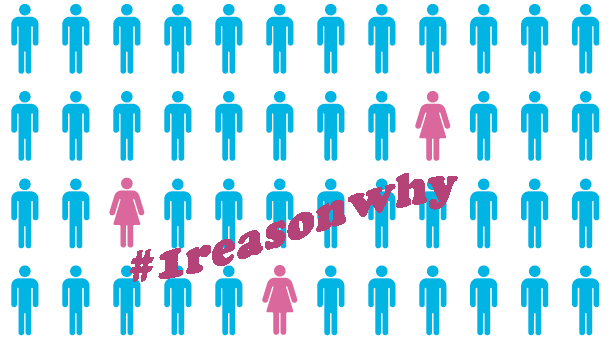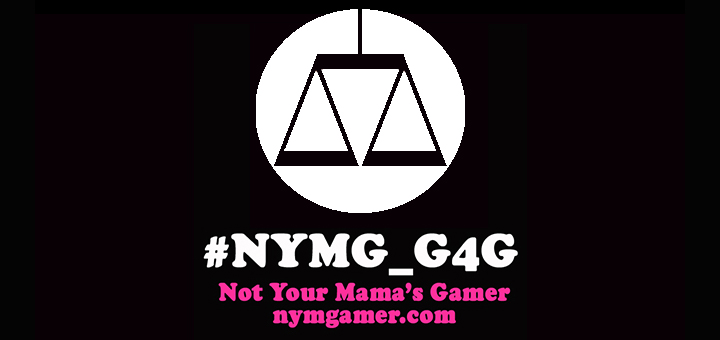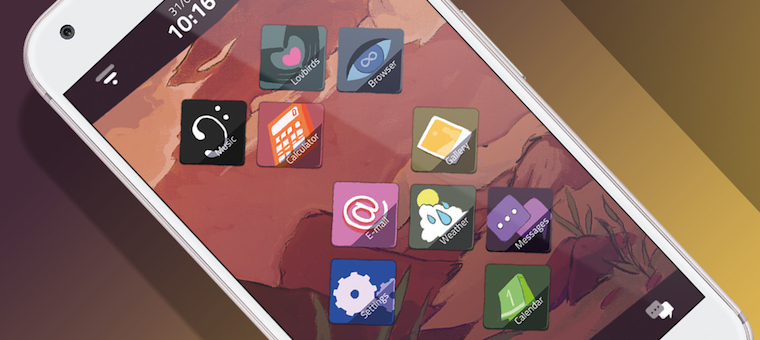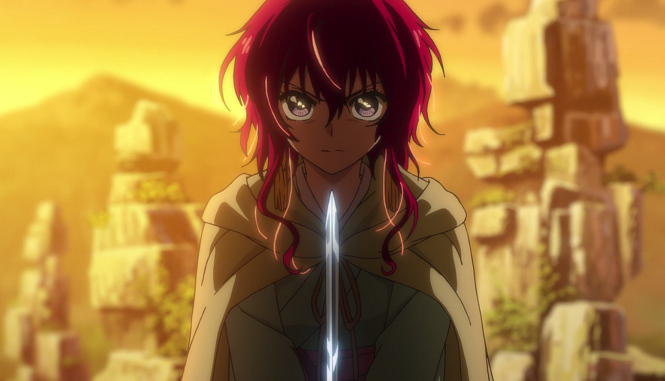Recently, a reader approached us and asked if we could share this exclusive story detailing her experiences within the games industry. The following relates her time spent working for a major studio’s big game release. The NYMG editorial staff stands with the writer in sharing her perspective on events, and we feel it is a story that needs to be told.
What follows is our source’s version of events and experiences, presented in her own words, though certain details of the studio, the game, and the timeline have been obfuscated in the name of safety and anonymity. Please note: we are privy to details and evidence not presented here, but we will not comment on speculation or answer questions about the identity of the author or the company for which she worked. Read part two here.
“You’re not going to talk with anyone else about this, right?” That’s the last thing HR told me before letting me know that my claims of working in a discriminatory, unsafe, sexist workplace were found to have no basis. That I’d have a week left since I didn’t feel comfortable working there.
I worked for a company that was story-based titan of gaming that got bought out by a company famous for throwing money at everything and still putting mediocrity out. I always thought it was ironic that our dominance started to fade when other companies began to succeed on a formula a female designer had pitched years before, that we had ignored: minimizing combat and focusing more heavily on story. I always wondered what might have happened if she had been listened to, taken seriously. My company was content to chase MMORPGs in a dying market and content to suffer through multiple layoffs. Now they’re facing tough times if any more major projects get cancelled, all because of an unwillingness to change course, and to listen to women.
Every day, work was exhausting, not only due to the way the company itself treated women, but the way that the game designers treated women. Despite our status as a major game company with a reputation for on being progressive toward women, so many of the game design decisions were so backwards it was disgusting. Our recent main game launched with a plot that included the chance to rape a powerless woman, and to sexually harass other NPCs into sex. Where women were given sexy outfits, but there were no equivalents designed for male players. Where same-sex romance plots were slashed because the licensing owners didn’t approve.
 Dealing with the designs that came after that was a constant battle. There were a lot of things that were overt: female NPC models were cut to make space for even cooler male versions of already-existing male versions. All outfits were designed for men first, and then stretched to fit over female bodies. Properly testing that fit for women wasn’t even part of the official outfit testing routine. Going against previous design philosophy, the designers created a canon version of the player for ads: a man, of course. Later, they tweaked the canon player to be “way cooler” by changing his face model to be Caucasian instead of Asian.
Dealing with the designs that came after that was a constant battle. There were a lot of things that were overt: female NPC models were cut to make space for even cooler male versions of already-existing male versions. All outfits were designed for men first, and then stretched to fit over female bodies. Properly testing that fit for women wasn’t even part of the official outfit testing routine. Going against previous design philosophy, the designers created a canon version of the player for ads: a man, of course. Later, they tweaked the canon player to be “way cooler” by changing his face model to be Caucasian instead of Asian.
Then there were the weird, subtle things. This game we were working on heavily featured a family, and they released a trailer that excluded female characters within the story, with only two seconds of footage with some random woman. From the trailer, you’d never know there was a daughter with a major role in the story, much less a mother. In the game, the sons were powerful, with designs that reflected it; the major character got a cool outfit and cooler accessories. The daughter got a sexy outfit that left her chest on display. Her outfit wasn’t a concern, I was told; it was designed to fit her sexualized personality, though she’s not a romance option for the player. Players have referred to her as “batshit crazy,” and that’s really the only personality trait she was given.
I was looked at funny when I suggested introducing a trans character. Then there was the fact that nearly every NPC either has a romance with you or with nobody. It all felt very geared towards hetero male players.
And it was exhausting for me trying to always be the one pointing it out, because it was clear that the studio didn’t want anyone pointing these things out. The office felt rigged to make things as difficult for women as they could be. With the release of every new hire list, I calculated the ratio of women to men. It averaged out to about 1 in 10. And then, every time there were layoffs, they hit women the hardest while weirdly terrible men stayed on. The kinds of men who would stop showing up to work, who would create such spaghetti code that systems weren’t scalable and nearly impossible to test, the kinds of men who treated women terribly. And really, treating women terribly seemed to be a sure way to advance.
I was randomly approached by a man in the corridors, who, with no lead-in, told me he didn’t believe in rape culture. He condescendingly explained to me that having a slider-based character creation system would isolate men who wanted to play strong, grizzled characters. So would having attractive male romance options. He became the darling of the monetization plan.
I knew a man who encouraged his coworkers to “take the red pill” [ed. note: the phrase “red pill” has been co-opted by Men’s Rights activists and other similar groups] and who deadnamed and misgendered a trans woman in the office, unapologetically. He got promoted not too long after that.
Another man my senior talked over me during a meeting, so much that the only other woman in the room stared at me in disbelief. We exchanged knowing, bemused looks while all the men in the room were completely unfazed.
I appreciated having a coworker confirm that what was happening in that meeting was awful, especially because usually women were encouraged to backstab each other to gain some reprieve. A senior woman reported me to my superior for suggesting editing a tool to track a weak spot in our translation system. I was in QA and it was as though she considered “outside” suggestions as treading on her turf. Another woman reported me for accurately tracking that a bug had been fixed by someone other than her, a bug she had actively rejected fixing. My superior herself kept things “light” by joking with the team about one of her subordinates being a pedophile.
And backstabbing worked. Another employee made fun of me with her coworkers when I asked her privately to change the wording on some insensitive press material that denigrated women, trans women especially. She got in no trouble for the incident, and instead got promoted via shoulder tap to the position I had been aiming for. She then went on to write some of the most sexist stuff in the game since the rape plot, with the “good” option being to gaslight another victim. Those lines eventually had to be rewritten and re-recorded, a costly ordeal, but the worst part about it was the gaslighting that happened with me when I tried to point out the problem. I was told that pointing out those kinds of issues wasn’t in my job description. When I held firm and kept insisting that such a scene was a problem, I was told it wasn’t, and that I was wrong.
That seemed to be the official company line: gaslight problems away. Do not invest in fixing them.
 When I complained that the shoulder tap promotion was unfair, I was told that moving from community to writing, that going from a full time employee to a contract wasn’t actually a different position, so it wasn’t something that needed an open application process.
When I complained that the shoulder tap promotion was unfair, I was told that moving from community to writing, that going from a full time employee to a contract wasn’t actually a different position, so it wasn’t something that needed an open application process.
When I pointed out the other, numerous issues in the game design, I got a vague negative mark on my annual review that I was too abrasive. Nobody would elaborate with any instances or specific issues that could be addressed. Just that I was too abrasive. Enough that it knocked me down a rank. When I complained that this was sexist, I was told that it wasn’t because men had also gotten reviews that they needed to be cheerier, which was not surprising for a studio that had the lowest satisfaction rating in the entire parent company. Also not surprising for a company where one of my coworkers regularly joked about how he would like to physically assault coworkers.
I rarely had the opportunity to bring up other kinds of issues, like gameplay balance, maps, and combat, because there were so many other problems with sexism in game design and so few other people pointing them out. I asked lead designers if there could be more people taking these issues seriously, and was told that the sexism issues in the design would be okay because I was there. They didn’t need anyone else to do it, they said, but it was exhausting being the single point-of-failure for everything.
Of course, it was much better than the proposed solution one of the senior staff came up with. He proposed a system where inappropriate content would get evaluated by a council of (all-white, mostly male) people in leadership positions and assessed for what actions would be taken, if any, when issues would arise. I asked them if this proposed council could find itself in a position where they ruled against racist implications in an issue brought to them by a black person. He said that could happen.
And just as these white men and women thought they could judge what was and wasn’t racist, HR was fond of telling me what was and wasn’t sexist or transphobic whenever I tried to bring up these and other issues. They regularly ignored, minimized, and forgot about the issues I brought up. I tried very hard to work within the system and push for change, but they preferred painting me as problematic and ultimately not taking any action. They assured me that a woman who was vocal about sexism in the company being dinged for being abrasive wasn’t sexist. I asked them how many men got dinged for treating women poorly, and they didn’t have an answer, even pretended like I hadn’t asked that question, or like it was unreasonable for them to sort through all the files searching for something like that.
I know that it’s really because there’s no consequence for mistreating women.






4 thoughts on “One Voice in the Dark: Sexism and Hostile Workspaces in the Games Industry (Part One)”
Another confirmation of the dark reality for many women working in the game development industry.
Reading this though, I wish I knew which Developer it was. I want to make sure, as a consumer, I am not supporting this company.
Even with anonymity, it takes bravery to tell your story, and I appreciate this. I also understand why that anonymity is important. But until companies are explicitly called out, things will never change.
Thanks for sharing this story. While I usually don’t want to judge without hearing the other side, there are enough examples that I believe you.
What I find worst is that even though the company offers ways to report this behaviour, those reports are ignored. Therefore, they can still say they are promoting equality while in fact the opposite is the case.
I also find it sad that the players don’t hear about this even though it does impact the game development. If a company keeps bad employees just because of personal favors or because they like their attitude, then the game suffers.
Hopefully, one day someone at the parent company will do something about it but I fear that this would mean the end of the studio and the game as well.
Thanks for giving us your voice. I’m looking forward to reading part 2. I am dishearten reading your story. It reminds me of my wife’s experience at work (at a government agency, not gaming related). Her boss would assign work that was clearly in my wife’s domain to someone else, even after that person told the boss my wife was better suited.
I hope you have found employment where the culture conforms to your values and needs.
There is enough here for me to make an educated guess as to the studio and game referred to (including a few specifics about people) but I know why we aren’t naming names here and I won’t.
I will say that the Community Team of the same game banned me from the forums ostensibly for profanity but in actuality for being one of the most vocal critics of the mis-handling of romantic content, the absence of same-sex options and the damaging silence of the studio in responding to questions on the issue.
To hear about these conditions within the studio is hardly surprising, even for an alleged “industry leader” on inclusiveness and diversity. It may have been, once. It seems like the pushback from the Old Boys’ Network has been pretty fierce. Sad to hear.